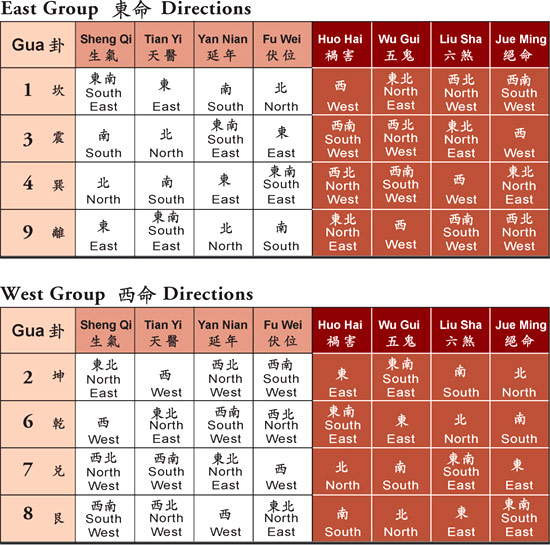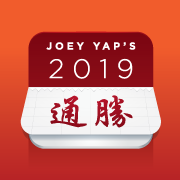While conducting some courses on Feng Shui and BaZi in Canada recently, many of the participants told me how surprised they were that Feng Shui was so straightforward. Many of them had, in the past, found their study or attempts to practice Feng Shui complicated by an uncertainty over a very simple yet fundamental question: when you Feng Shui a house, what do you focus on first?
Perhaps it is the result of information overdose but many people often have no idea where to start.
If you want to Feng Shui your house yourself, what should you be looking at?
Think Environment, Forms and Qi
When it comes to Feng Shui, it is simply not possible to over-state the importance of the external macro environment, i.e. the formation of mountains and rivers in the vicinity of your home or property.
A good Classical Feng Shui practitioner will always look at these natural features, known as Landforms (Luan Tou) or Forms, before he or she evaluates the Feng Shui of the property. These Forms dictate the quality and type of Qi that influences the area and property.
In addition to the Forms, which determine if there is positive or negative Qi in the area or if the Qi flow is somehow being blocked or repelled, formulas must always be considered.
Formulas, which are techniques and calculations for determining the energy map of an area or the property, help to qualify the Forms, assess the quality of Qi and provide a fuller picture of the Feng Shui situation.
Finally, when it comes to the property itself, Classical Feng Shui practitioners will always zero in on the three most important factors: the Main Door, the Kitchen and the Bedroom , which are known as “Yang Zhai San Yao”.
In fact, when it comes to evaluating the property itself, without looking at the macro environment and the formulas, these are the three areas that should be given priority.
Why is it that only the Main Door, the Kitchen and the Bedroom are considered important?
As I have said in the past, Feng Shui is very practical and logical.

The Main Door is given significant priority because this is the entrance to the house, for the residents of the property and for the Qi. The Main Door is considered the Qi Mouth of a home.
Accordingly, it is extremely important to make sure that you have a good Main Door as this will go some way towards ensuring you have good Qi entering the property. The Main Door is considered the primary reference point in any system of Classical Feng Shui.
The Kitchen is where food is prepared and so is also extremely important. Food is what nourishes us and gives us energy and strength to go about our endeavours. Hence, the Kitchen should be located in a suitable sector, so as to ensure the vibrant health of the residents.
Finally, the bedroom is where we spend time resting and sleeping. Out of 24 hours a day, most people spend between 6-8 hours in their bedroom. As such, it is important that the bedroom is located in a place that is conducive for rest, recovery and sleep with stable and rejuvenating Qi.
If you can look at nothing else, make sure that the above three factors are well taken care of and you would have taken some important positive steps towards improving the Feng Shui of your property.
Applying simple Feng Shui
For the average person, evaluating the external macro environment and Landforms is not something they can do or, for that matter, should be expected to be able to do without some expert help. So if you want to Feng Shui-It-Yourself, what then can you do?
Look at the house itself in tandem with a simple formula-based assessment of the three important factors: the Main Door, the Kitchen and the Bedroom.
The technique is known as the Life Gua Method, which is derived from a system of Feng Shui known as Eight Mansions or BaZhai. It is premised on the theory that every individual is imprinted with certain energies at the time of his or her birth, based on the planetary influences and magnetic fields exerting an effect on the Earth.
These energies are unlocked or maximised when used in tandem with certain directions. A simple analogy would be to see the Life Gua as your personal radio frequency and the directions as the antenna that enables you to ‘tune into’ that frequency.
I have selected the Life Gua Method because firstly, it is a safe method with minimal negative side effects, even if applied incorrectly.
Secondly, it is quite an easy to use and usually brings about a modest improvement.
Thirdly, it is a system of Feng Shui that produces very steady improvements, and thus is suitable for people residing long-term in a property.
Begin with your year of birth. Add the two last digits together. For example 1968 = 6 + 8 = 14. Then reduce to a single digit by adding them together: 1 + 4 = 5.
If you are female add 5 i.e. 5 + 5 = 10, and reduce it to a single digit: 1 + 0 = 1. so your personal Gua number is 1.
If you are male, subtract the number from 10. For example, 10 – 5 = 5. Reduce to a single digit and your personal Gua is 5.
If your personal Gua happens to be 5, you assign the number 8 for females and number 2 for males as there is no number 5 in the Gua table.
Once you have found your Gua number, match it to either the East Group or the West Group directions table below. From here, you can derive your personal Favourable and Unfavourable Directions.
Each of these directions is not just merely ‘favourable’ or ‘unfavourable’. There are specific types of energies in each direction, which are suitable for a specific use or function.
For example, the Sheng Qi direction taps into Life Generating Qi, suitable for increasing work performance and vitality, while the Tian Yi direction taps into healing energy that is favourable for health or rejuvenation.
The Yan Nian direction is all about communications and interpersonal relationships while the Fu Wei direction is best used for calming, peaceful and relaxing activities, such as mediation, personal cultivation or just a good night’s sleep.
Let’s take an example to give you an idea of how to make use of the Life Gua Method. For example, a female born in 1957 will have a Gua number of 8. She belongs to the West Group of Directions, thus her Favourable Directions are South West, North West, West and North East. Her personal Unfavourable Directions are South, North, East and South East.
How then do you apply this information to your property? One way is to check to see if your Main Door taps into any one of your Personal Favourable Directions.
You can also make use of this system in the bedroom, by making sure that your bed headboard faces one of your Personal Favourable Directions.
The Life Gua Method is not by any means, the most powerful form of Feng Shui you can use, nor is it the only method. It is also has some qualifications and limitations, especially for properties with more than one resident, which I will talk about next week.








